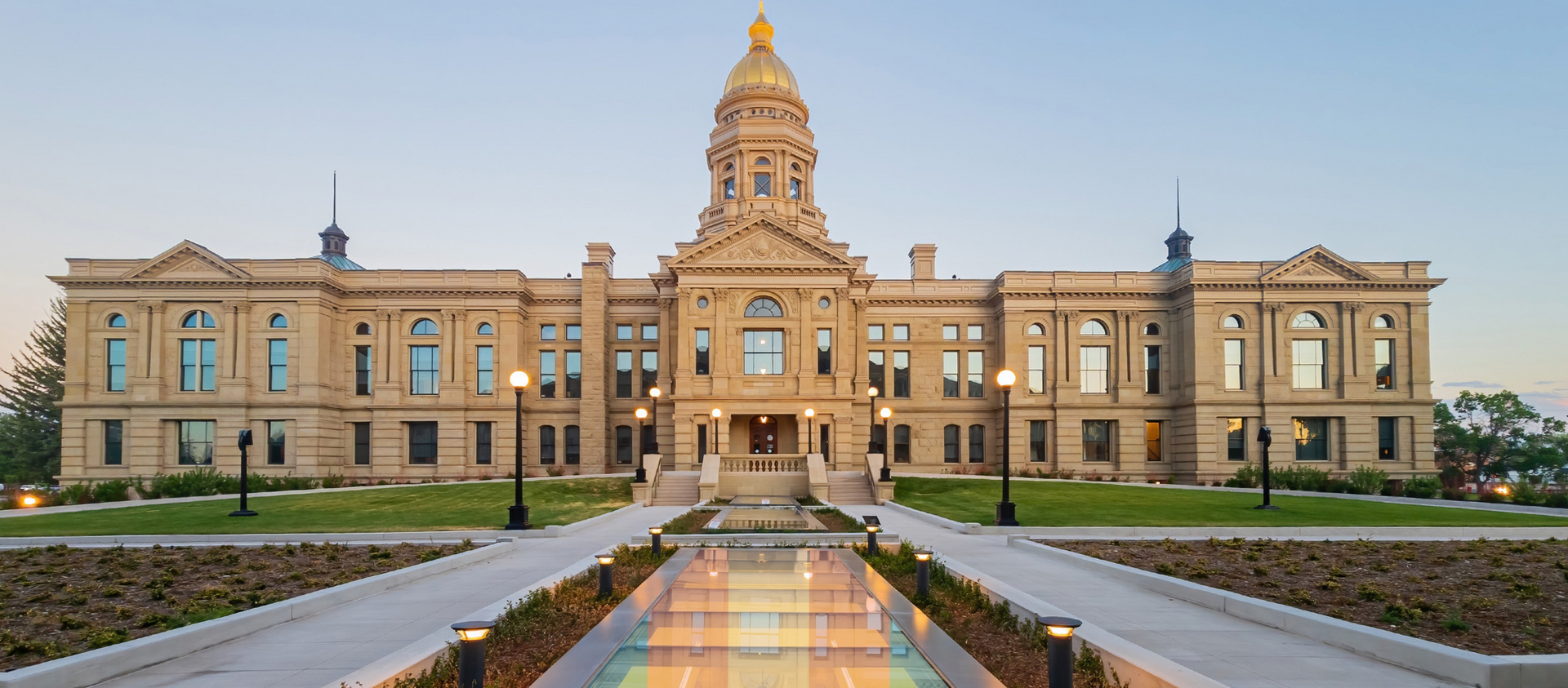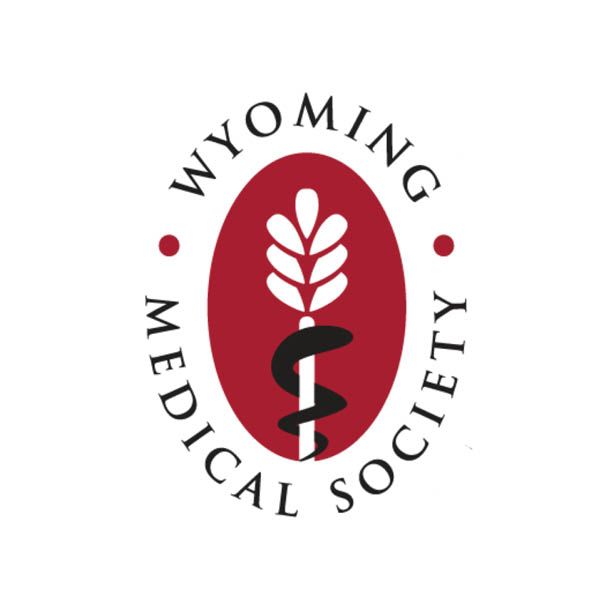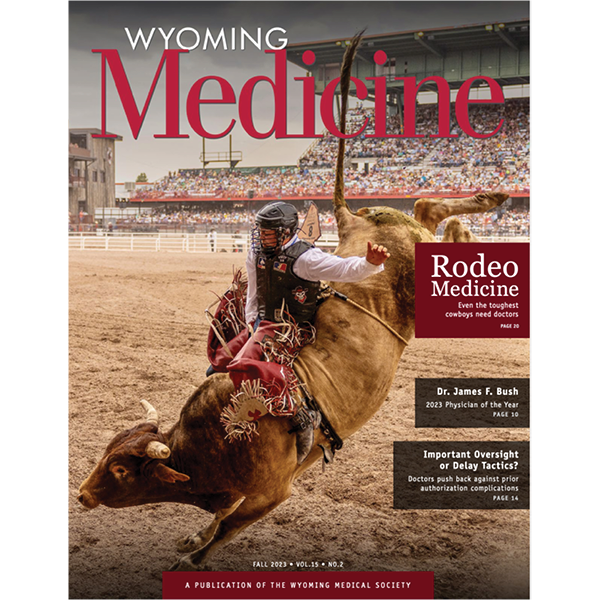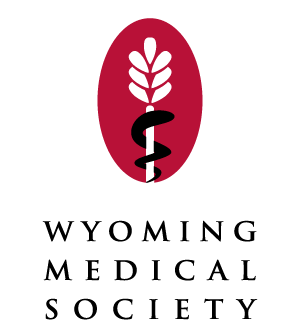
Gender-Affirming Care: Providers and advocates navigate the needs of a small community
Gender-Affirming Care: Providers and advocates navigate the needs of a small community
Originally published in Wyoming Medicine Spring 2023
In January and February, physicians, psychologists, and advocates appeared at the Capitol to testify about two bills that sought to limit gender-affirming care for people under the age of 18 in the state. While Senate File 111, Child abuse– change of sex, and Senate File 144, Chloe's law– children gender change prohibition, both failed to become law, the topic reflected confusion, fear, and anxiety among those on all sides of the issue.
Legislators sponsoring the bills sought to control what they worried would harm children, and physicians were fearful they would face criminal charges for their work to provide the best care possible for their patients. Mental health professionals were anxious about the potential harm to transgender children who watched, listened, or read about the legislative action. The Wyoming Medical Society had opposed both bills as they stood.
Identifying as a different gender
Transgender is an adjective describing people whose gender identification does not match the sex they were assigned at
birth. A transgender man is someone who was assigned female at birth but now identifies and lives as a man. A transgender woman is someone who was assigned male at birth but identifies and lives as a woman. Nonbinary people identify as a gender that’s not exclusively male or female. Together, lesbian, gay, bisexual, transgender, and queer and/or questioning, plus other sexual and gender minorities are commonly known as LGBTQ+.
A 2021 Pew research study found that 20% of Americans say they know someone who identifies as transgender.1 A 2022 UCLA Williams Institute research study2 found that nationally, 1.4% of youth ages 13-17, and 0.6% of adults age 18 and older, identify as transgender. The same study estimates that 0.6% of youth ages 13-17 in Wyoming identify as transgender.
“Before about 10 years ago it would be pretty rare. Now it’s routine,” said Wyoming Behavioral Institute Medical Director Stephen Brown, MD, who specializes in child and adolescent psychiatry. He is also a member of the Wyoming Medical Society board. Dr. Brown has practiced psychiatry in Wyoming for 33 years. He said he isn’t sure why he is seeing more cases of patients identifying as a different gender, but it may be that it’s more acceptable socially. He is still concerned for them.
“A lot of these kids are under immense pressure. The adults don’t understand.” Dr. Brown said that it’s not just bullying at school; many adults haven’t met a transgender person before and have trouble with the concept.
The needs of children and adolescents struggling with mental health issues have changed over time in concert with shifts in the environment in which they live. Dr. Brown is seeing more patients identifying as a different gender, and Wyoming Behavioral Institute has added an LGBTQ+ group as part of its residential treatment model to give patients a safe place to talk about their feelings. Dr. Brown offers clinical rotations for family practice residents and physician assistant students to observe and understand the issues today’s youth are facing. He advises his students to treat people as they are, where they are. “It is important to recognize that trauma may result from rejection, particularly when adult decision-makers in children’s lives are unable to accept them,” he said.
Mental health
Mental health is a common topic of discussion among caregivers of transgender children. They may suffer from depression, eating disorders, and be at elevated risk for suicide.
Caroline Kirsch, DO, associate program director and director of Osteopathic Education at the University of Wyoming Family Medicine Residency Program in Casper, cited statistics from the 2022 Trevor Project National Survey.3 The survey found that nearly one in five transgender and nonbinary people ages 13-24 had attempted suicide during the past year. Of all surveyed LGBTQ+ teens aged 13-17, 18% had attempted suicide, and 50% had considered suicide. This is all higher than the national averages.
“Research shows this is a result of trauma from social stigma,” Dr. Kirsch said, citing findings by the Trevor Project survey. She noted that transgender people weren’t experiencing trauma just because they felt uncomfortable in their body, they were also experiencing trauma because of the way they were treated by others.
The Trevor Project survey identified three support categories that decrease suicide risk for transgender people; 1) social support from family, which cut the attempted suicide reporting in the group to less than half, 2) gender accepting schools, and 3) community support. "Each step of support adds another level of affirmation for that person," Dr. Kirsch said.
“I think the mental health part is important for skills to cope with the trauma that comes from being stigmatized,” Dr. Kirsch said. “How do you navigate in a society that’s not accepting?”
What is gender-affirming care?
Gender-affirming care can be a number of actions that support a person’s gender identity. This can be social affirmation, such as addressing a person by the name and pronouns they prefer. It can be supporting a child who dresses and acts in the manner of the gender they prefer. It can be mental health care and counseling in a way that addresses and acknowledges the person as they want to be seen.
Beyond mental healthcare, gender-affirming care might be the use of puberty blockers to slow down puberty for a child who experiences genuine and long-held distress related to gender, which can be reversed. In some cases, which are overwhelmingly for adults, it can also be hormonal or surgical intervention.
Core curriculum
“It’s something that I never dealt with growing up, the medical school never talked about it. I’m sure they’re talking about it a whole lot now in medical school,” Dr. Brown said.
Gender identity is now part of the core curriculum in Wyoming’s medical school. Doctors who earn their MD through the Wyoming, Washington, Alaska, Montana, and Idaho (WWAMI) medical school program can also take an LGBTQ+ pathway. The LGBTQ+ pathway is one of six pathways the school offers for students who would like to help underserved populations. Other available pathways are: Indian Health, Global Health, Latinx, Black Health Justice, and Underserved.
“WWAMI first years [medical students] learn to provide an affirming environment for LGBTQ+ patients, because it’s something that providers are starting to see,” Dr. Kirsch said. “They are entering clinical rotations understanding how to approach LGBTQ+ patients in a positive, affirming way.”
“I’m of the belief that everyone needs the very best healthcare they can get. This is one space. So many groups need better health and better access,” Dr. Kirsch said.
Healthcare access
Wyoming Equality, a nonprofit dedicated to improving the lives of LGBTQ+ people, is working on resources at a local level. “It’s really interesting what good data can do,” said Sara Burlingame, executive director of Wyoming Equality. Two years ago, the nonprofit asked the LGBTQ+ community to share feedback to help inform its policy. Burlingame expected the community to say they needed help with acceptance and hate crimes. Instead they identified healthcare needs.
“Folks were going out of state. Healthcare providers didn’t know what was needed. It was a much more complex issue
than we anticipated,” Burlingame said.
The Wyoming Equality Healthcare Access Project, or WEHAP, committee formed, and made a plan to help the LGBTQ+ community access healthcare.
Wyoming Equality Healthcare Organizer Kota Babcock is one of two Wyoming Equality employees assigned to WEHAP. Babcock said that first, WEHAP identified two main barriers to healthcare access for LGBTQ+ people: 1) access to affordable healthcare, and 2) access to supportive providers. Then they began finding solutions.
WEHAP has compiled a list of almost 50 supportive providers in Wyoming, from primary care physicians to naturopaths. Babcock is working to add affordable payment options, including for those without insurance, to the list. Patients are able to reach out to Wyoming Equality for this information, but it’s kept from public view after a provider in Colorado received threats.
To create the list, Wyoming Equality representatives meet with providers for a one-on-one session. “We’re really open to what that person has to say about LGBTQ issues,” Babcock said. “We are not abandoning people for being behind on the information. We want to be properly cared for, and we want doctors to be able to ask questions. We are looking for people who are open to learning, who are showing dedication and interest in caring for patients. We are a small community and want as many allies as we can find.”
Dr. Kirsch also wants both patients and providers to feel comfortable. “The whole idea is that we have a place where people can get healthcare, not be turned away—which has happened—or laughed at,” she said. “I think some providers are afraid and don’t want to do anything. Most of us are here because we want to provide healthcare, if you don’t know what to do, you freeze.”
“Honestly, caring for most human beings is the same,” Dr. Kirsch said. “If it’s an upper respiratory infection, gender doesn’t matter.”
How would Dr. Brown recommend providers understand gender identity when caring for patients? “You can emphasize the desire–of people being happy. They need compassionate support,” he said. “The political environment complicates their world. It’s just this: how do you get good care to people who identify as a different gender?”
Wyoming Equality Executive Director Sara Burlingame would like providers to know that her organization would like to have a dialogue, even when it’s difficult to know where to start.
“We could have a better conversation here in Wyoming. We’ll meet you where you are,” she said.

Resources
If a provider is looking for more information, Dr. Kirsch recommends reading publications from sources such
as the American Academy of Pediatrics (AAP), the American Academy of Family Physicians (AAFP), and the Fenway Institute.
Resources accessed for this article include:
- American Association of Pediatrics (AAP) policy statement. “Ensuring comprehensive care and support for transgender and gender-diverse children and adolescents.” Pediatrics, October 2018.
- AAP publication. “Developing Parenting Guidelines to Support Transgender and Gender Diverse Children's Well-being.” Pediatrics, September 2022.
- AAP’s HealthyChildren.org website, offering plain language guidance for parents of transgender youth.
- American Medical Association (AMA) Education Hub, lgbtqiahealtheducation.org.
- The Endocrine Society. “Endocrine Treatment of Gender-Dysphoric/Gender-Incongruent Persons:
An Endocrine Society Clinical Practice Guideline.” The Journal of Clinical Endocrinology & Metabolism, November 2017. - San Francisco State University’s Family Acceptance Project.
- Wyoming Equality Healthcare Access Project (WEHAP), wyomingequality.org.
- World Professional Association for Transgender Health (WPATH), “Standards of care for the health of transgender and gender diverse people, version 8.” Int J Transgend Health. 2022, wpath.org.
1 Minkin, R., Brown, A. “Rising shares of U.S. adults know someone who is transgender or goes by gender-neutral pronouns.” Pew Research Center, 2021, pewresearch.org.
2 Herman, J.L., Flores, A.R., O’Neill, K.K. “How Many Adults and Youth Identify as Transgender in the United States?” The Williams Institute, UCLA School of Law, 2022, williamsinstitute.law. ucla.edu.
3 “2022 National Survey on LGBTQ Youth Mental Health,” 2022, thetrevorproject.org.
Disclaimer
This web site is provided for educational and informational purposes only and does not constitute providing medical advice or professional services. The information provided should not be used for diagnosing or treating a health problem or disease, and those seeking personal medical advice should consult with a licensed physician. Always seek the advice of your doctor or other qualified health provider regarding a medical condition. Never disregard professional medical advice or delay in seeking it because of something you have read on the Wyoming Medical Society's website. If you think you may have a medical emergency, call 911 immediately. No physician-patient relationship is created by this web site or its use. Neither WMS nor its employees, nor any contributor to this web site, makes any representations, express or implied, with respect to the information provided herein or to its use.
WyoMed Blog











